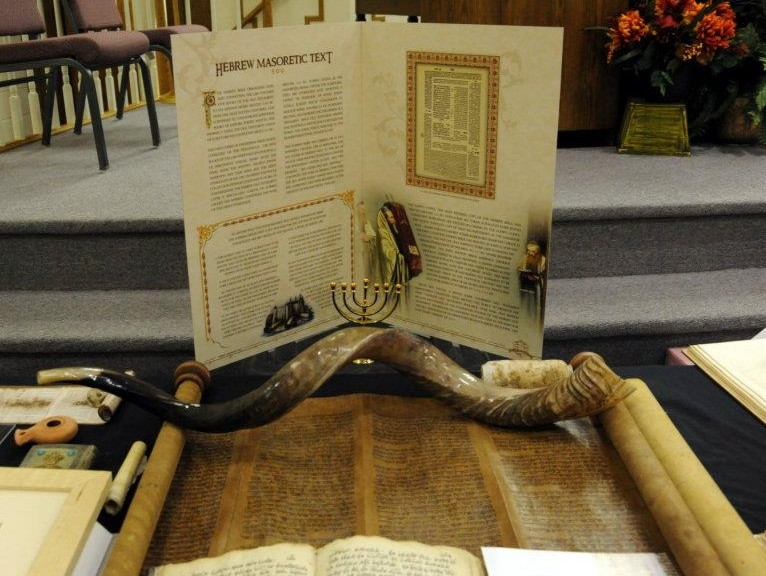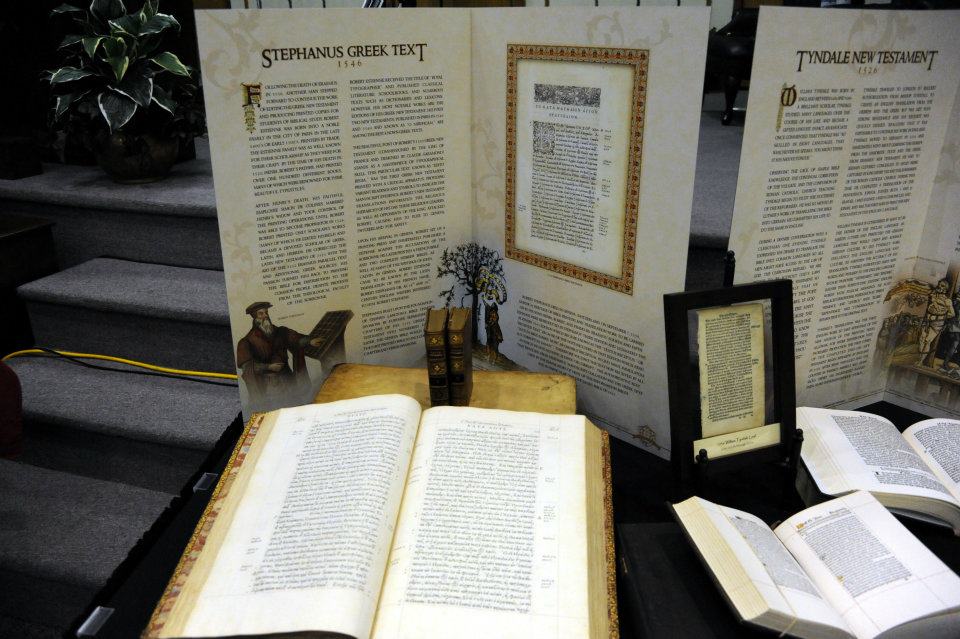JERU'SALEM, ירושלם (the vision of
peace),
the capital city of Judea, situated twenty-
five miles west of Jordan, and forty-two
miles east of the Mediterranean. Mel-
chizedek is supposed to have been king
of it in the days of Abraham, when it
was called SALEM, Gen. 14:18; Psal.
76:2: in the days of Joshua it was
called JEBUS, Josh. 15:63; Judg. 19:10.
David took it from the Jebusites, and
made it his capital, 1 Chron. 11:4-8; and
Jerusalem continued to be the metro-
polis through various revolutions in the
nation. Solomon built here a magnifi-
cent temple, B.C. 1003: but the city was
taken, and the temple pillaged, by Shi-
shak, king of Egypt, B.C. 971, 1 Kings 14:
25. Nebuchadnezzar conquered Judea
and took Jerusalem, 2 Chron. 36.,
seizing the royal and sacred treasures,
and carried them with many of the
people captives to Babylon, B.C. 606:
the chief houses of the city and the
temple were burnt to ashes by the Chal-
deans, carrying the remaining treasures
to Babylon, 2 Kings 24:6, B.C. 588.
Jerusalem became repeopled by the re-
turn of many Jews on the decree of
Cyrus, B.C. 536, Ezra 1:1; Isa. 44:28;
45:1, 4, 13. Nehemiah rebuilt it; and,
with Ezra, restored the worship of God,
Neh. 2.-5:14; 8.; 13. B.C. 454-439.
Alexander the Great took Jerusalem,
B.C. 333. Antiochus, king of Syria, be-
sieged and took the city, plundered the
temple, and established idolatry instead
of the worship of God, B.C. 170: Judas
Maccabeus recovered the city, and re-
established Divine worship, B.C. 165:
Jonathan, a brother of Judas, assumed
the office of high-priest, and formed an
alliance with the Romans, B.C. 161.
Rome, then mistress of the greater part
of the world, obtained influence at Jeru-
salem, where the royal and pontifical
offices were contended for, so as to re-
quire the interposition of a Roman army.
Pompey placed Hyrcanus on the throne
at Jerusalem, in opposition to his brother
Aristobulus, but made Judea a Roman
province, B.C. 163. Pompey profaned
the temple of Jerusalem; and Crassus,
governor of Syria, pillaged it of 10,000
talents of silver, B.C. 54. Antipater, an
Idumean nobleman, by favour of Julius
Cæsar, was made procurator of Judea,
B.C. 47, Hyrcanus retaining the priest-
hood. Herod the Great succeeded his
father Antipater, and obtained the royal
dignity, B.C. 40: and to gratify the Jews,
this prince almost rebuilt the temple of
Jerusalem, Mark 13:1; John 2:20.
Judea, under the government of his sons,
became fully recognised as a Roman
province, when Shiloh was
come in the
person of Jesus Christ, and "the sceptre
departed from Judah," Gen. 49:10.
Sovereign mercy, by the mission of
Christ, brake down "the middle wall of
partition" between Jews and Gentiles,
Eph. 2:14; and Jerusalem, as the Jews
rebelled, was besieged, taken, and re-
duced to heaps of rubbish, by Titus,
son of Vespasian, the emperor of Rome,
A.D. 70. Jerusalem began to revive, and
the Jews annoyed the Romans, when
the emperor Adrian planted a colony
there, changing its name to Ælia Capi-
tolina, prohibiting the approach of the
Jews on pain of death, A.D. 134. Con-
stantine, the first [professing] Christian emperor,
however, restored its name, A.D. 326;
and several churches were built in the
city and through Judea, by his mother
Helena. Julian, his nephew, became
emperor, and laboured, but in vain, to
rebuild Jerusalem, designing to falsify
the predictions of Christ, A.D. 363. Jeru-
salem was taken, A.D. 613, by Chosroes,
king of Persia, and 90,000 Christians
slain: it was retaken, A.D. 627, by Hera-
clius, the emperor: it was again taken
by the caliph Omar, A.D. 637, and fell
under the power of Ahmed, the Turkish
sultan of Egypt, A.D. 868. Godfrey of
Boulogne, with his crusaders, took Jeru-
salem, A.D. 1099. Saladin, sultan of the
East, captured it A.D. 1118; but it was
restored by Saleh Ismael, emir of Da-
mascus, to the Latin princes, A.D. 1242:
they lost it to the sultans of Egypt,
A.D. 1291. Selim, the Turkish sultan,
conquered Egypt and Syria, A.D. 1516;
and his son Solyman built the present
walls of Jerusalem. This holy city is
still under the power of the Turks,
"trodden down of the Gentiles," in
confirmation of the predictions of Christ,
Luke 21:24. Jerusalem, though sunk
in dishonour, is still the subject of
Divine prophecy; and lately the precious
doctrines of Christ have been preached
within its consecrated enclosures by
mies. from England and America.
"Beautiful for situation, the joy of the
whole earth, is mount Zion." "Still,"
as Dr. Jowett remarks, "at every step,
coming forth from the city, the heart is
reminded of that prophecy, accomplished
to the letter, 'Jerusalem shall be trod-
den down of the Gentiles.' All the streets
are wretchedness; and the houses of the
Jews especially, the people who once
held a sceptre on this mountain of holi-
ness, are as dunghills." Jerusalem now
possesses a mingled population of about
12,000, or, as some estimate it, 20,000.
Messrs. Fisk and King, American
mies., in 1823 gave it thus :--
| Mussulmans | . . |
10,000 |
| Jews . . | . . |
6,000 |
| Greeks . | . . |
2,000 |
| Catholics . | . . |
1,500 |
| Armenians . | . . |
500 |
| | |
------- |
| | |
20,000 |



